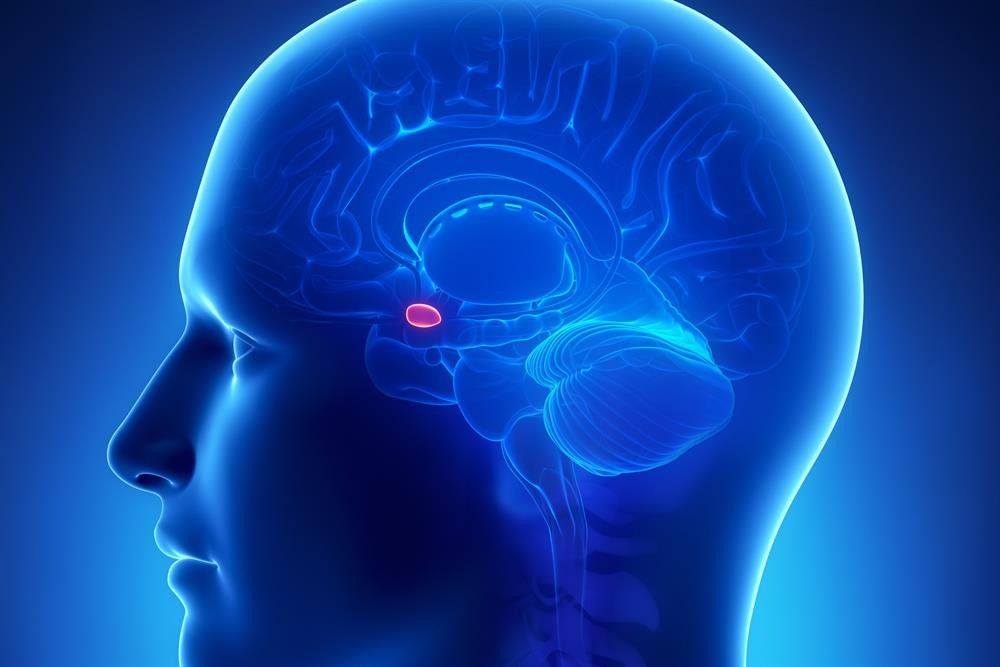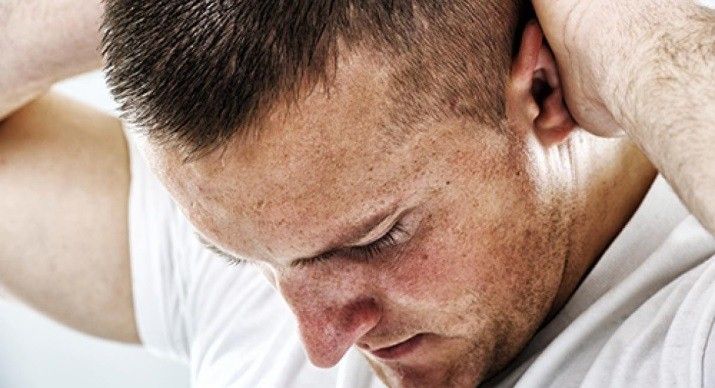Life often throws us a curve ball producing unexpected and difficult circumstances, and sometimes after a traumatic or challenging life event takes place, individuals are left with memories of the situation, coupled with a disorder known as PTSD.
What is PTSD?
PTSD, or Post Traumatic Stress Disorder, is an anxiety disorder with symptoms which include anxiety, anger, depression, irritability, sleep problems and sadness. It occurs in people who have experienced or witnessed a traumatic event such as war, combat, a natural disaster, a serious accident, a terrorist attack, child abuse and personal assault victims. Approximately 8% of the population suffers with PTSD at some point in the life. (Rates are higher among military veterans). The disorder manifests itself at different levels, and treatment usually involves anxiolytics and antidepressants, which are inefficient and have considerable side effects.
This debilitating condition makes life challenging, and can cause isolation, not only from yourself, but also from the people around you – loved ones, strangers, friends and family.
Often, moments of PTSD are experienced when the individual becomes “triggered”. These triggers can arise from anything, and at any time, which is why PTSD is so unexpected and unpredictable. Although there are some treatment methods designed to help those dealing with PTSD on a day-to-day basis, a glimmer of hope has recently been arising in the realm of alternative therapy.Through clinical studies, CBD oil has brought relief to those suffering from PTSD, offering significant peace and ease of mind to the thousands of patients who have trialled it.
The way CBD oil helps those suffering with PTSD is unique. The compound directly targets the chemical responses which produce stress, anxiety, depression, and many of the other psychological symptoms associated with the disorder. Triggers will still exist in everyday life, but by reducing these symptoms, CBD can help to block the mood receptors that are triggered, which in turn:
- Promote natural sleep hormones
- Regulate stress hormones
- Block recurrent memory, flashbacks etc.
- Improve the reprogramming of the brain’s response mechanisms
In reality, everything CBD does relates to mechanisms individuals with PTSD experience in order to relieve and reduce the onset of symptoms. Let’s hear first-hand from two CBD advocates, both suffering from different causes of PTSD.
“Returning home from deployment in Afghanistan I was struggling with depression, anger and alcoholism. Diagnosed with a serious case of PTSD, I was almost driven to suicide with the drugs “Defense” gave me as treatment. Although I speak with a therapist regularly, I also manage my PTSD by taking a daily dose of pure CBD oil.
This incredible therapeutic alternative helps me sleep better, in addition to decreasing my day to day sensitivities to outside triggers, particularly anger issues. CBD oil has made a profound difference in not only my life, but also the lives of my family and friends.” –Mike
“5 years ago I survived a tragic car accident. Although the physical damage to my body has healed, my mind was still overwhelmingly damaged by the accident. I was diagnosed with PTSD a couple of years ago, and searched for something to relieve the constant anxiety and panic attacks I was experiencing. I started ingesting CBD oil about 9 months ago, and the results have been astonishing. Now, I am able to drive my car to and from work without experiencing panic attacks, and my overall wellbeing and sensitivities in day to day life have improved dramatically –Hayley
Is it Stress or is it PTSD?
Post traumatic stress disorder, or PTSD, is a serious illness that needs professional intervention and treatment. To help decide whether you (or a loved one) might have this disorder, the following five questions are important:
1. Have you ever experienced or witnessed a life-threatening event that caused you to feel intense fear, helplessness, or horror?
2. Do you re-experience this event in at least one of the following ways:
·Repeated distressing memories or dreams·Flashbacks or a sense of reliving the event·Intense physical and/or emotional distress when exposed to things that remind you of the event
3. Do you avoid reminders of the event and feel numb, compared with the way you felt before, in three or more of the following ways?
·Avoiding thoughts, feelings, or conversation concerning it·Avoiding activities, places and people who reminds you of it·Being unable to remember important parts of it·Losing interest in significant activities in your life·Feeling detached from other people·Feeling that your range of emotions is restricted·Feeling as if you have no future, and that you cannot expect to have a career, long life, successful marriage, or achieve other important goals.
4. Are you troubled by two or more of the following:
·Problems sleeping· Irritability or outbursts of anger· Problems with concentration·Feeling “on guard” all the time· Exaggerated startle response (jumpiness).
5. Do your symptoms interfere with your daily life?
Thousands of other individuals have had similar experiences. Simply put, the seemingly miraculous healing benefits of CBD oil are not going unnoticed.
How stress affects the brain is an interesting disorder to study. Everyone suffers some form of stress in their everyday life; economic downturn, relationships ending; issues which are manageable, but also wear us down.
Traumatic stress is a completely different neurological disorder and how we see things. Traumatic stress covers issues which are much more severe, with PTSD at the top of the traumatic stress spectrum. Traumatic stress leaves a lasting impact on an individual.
Statistics predict that approximately 70% of the population will be exposed to some form of traumatic stress during their lifetime. Interestingly, of that 70% who become exposed to traumatic stress, only about 10% of those people will go on to experience PTSD.
There are a few questions which the psychiatric research world is very interested in answering with respect to PTSD.
A.what’s different in the brain of someone who has PTSD vs someone who doesn’t?
B.why do some people develop PTSD and others don’t?
What scientists DON’T yet understand is that why some people are more vulnerable, and there is a lot of research being directed into these questions, to try and ascertain if there is some kind of biological signal that can be extracted from a person’s DNA; or from their blood; or some other measurement that will predict if they experience traumatic stress, they have a good chance of getting PTSD.
What scientists DO know is what happens in the brain when someone suffers PTSD.

The amygdala (Latin for almond because it is shaped like an almond) is the part of the brain which assesses our environment, and all our sensory information gets processed. The amygdala then communicates with the pre frontal cortex part of the brain to ask “is this Good? Bad? Safe? Dangerous?” Sometimes these two mis-communicate, causing the amygdala to default into a stage of vigilance, presuming everything is dangerous. A mild form of this disorder would be called a “worry wart”. A severe case we call PTSD.
Among the possible alternative approaches, the use of CBD is particularly promising. Recent reviews have reported promising results of CBD treatment in neuropsychiatric disorders, including PTSD. What began as a possibility gained strength through results obtained in human studies. CBD is now considered a new therapeutic alternative for treating PTSD because it has been proved to be well tolerated by humans, both in overall safety and possible side effects.
Symptoms
PTSD symptoms may start within one month of a traumatic event, but sometimes symptoms may not appear until years after the event. These symptoms cause significant problems in social and work situations as well as relationships. They can also interfere with your ability to go about your normal daily tasks. Symptoms may include flashbacks, nightmares and severe anxiety, as well as uncontrollable thoughts about the event. Most people who experience traumatic events have temporary difficulty adjusting and coping, but with time and self-care, they usually get better. If the symptoms get worse, last for months or even years, and interfere with you day-to-day functioning, then you may well have PTSD. Getting effective treatment is critical to reducing symptoms and improving self-function.
Intensity of Symptoms
PTSD symptoms can vary in intensity over time. You may have more PTSD symptoms when you’re stressed, or when you come across reminders of what you experienced, ie: you may hear a car backfire and relive combat experiences, or you may see a news report about sexual assault and feel overcome by memories of your own assault.
PTSD symptoms are usually grouped into four types: Intrusive Memories; Avoidance; Negative Changes in attitude and mood; and changes in physical and emotional reactions. Symptoms can vary over time as well as vary from person to person.
Intrusive Memories
·Recurrent, unwanted distressing memories of the traumatic event
·Reliving the traumatic event as if it were happening again (flashbacks)
·Upsetting dreams or nightmares about the traumatic event
·Severe emotional distress or physical reactions to something that reminds you of the traumatic event.
Avoidance
·Trying to avoid thinking or talking about the traumatic event
·Avoiding places, activities or people that remind you of the traumatic event
Negative changes in thinking and mood
·Negative thoughts about yourself, other people or the world
·Hopelessness about the future
·Memory problems, including forgetting important aspects of the traumatic event
·Difficulty maintaining close relationships
·Feeling detached from family and friends
·Lack of interest in activities you once enjoyed
·Difficulty experiencing positive emotions
·Feeling emotionally numb
Changes in physical and emotional reactions
·Being easily startled or frightened
·Always being on guard for danger
·Self-destructive behaviour ie: drinking too much, driving too fast
·Trouble sleeping
·Trouble concentrating
·Irritability, angry outbursts or aggressive behaviour
·Overwhelming guilt or shame
Children under 6 years of age, signs and symptoms may also include
·Re-enacting the traumatic event or aspects of the traumatic event through plan
·Nightmares that may or may not include aspects of the traumatic event
Causes
You can develop PTSD when you experience, see or learn about an event involving actual to threatened death, serious injury or sexual violation. Doctors don’t know why some people get PTSD. As with most mental health problems, PTSD is probably caused by a complex mix of :
·Stressful experiences, including the amount and severity of trauma you’ve experienced in your own life
·Inherited mental health risks such as a family history of anxiety and depression
·Inherited features of your personality (temperament)·The way your brain regulates the chemicals and hormones your body releases in response to stress (see amygdala article above)
Risk Factors
People of all ages can suffer with PTSD, however some factors may make you more susceptible to developing the disorder after a traumatic event, such as:
·Experiencing intense or long-lasting trauma
·Having experienced other trauma earlier in life, such as childhood abuse
·Having a job that increases your risk of being exposed to traumatic events, such as military personnel and first responders
·Having other mental health problems such as anxiety or depression
·Having problems with substance misuse such as excess drinking or drug use
·Lacing a good support system of family and friends
·Having blood relatives with mental health problems including anxiety or depression
Kinds of traumatic events
The most common events leading to the development of PTSD include:
·Combat exposure
·Childhood physical abuse
·Sexual violence
·Physical assault
·Being threatened with a weapon
·An accident
Many other traumatic events can also lead to PTSD, such as fire, natural disaster, mugging, robbery, vehicle crash, torture, kidnapping, life-threatening medical diagnosis, terrorist attack, and any extreme or life-threating event.
Complications
PTSD can disrupt your whole life – your job, your relationships, your health and your enjoyment of everyday activities.
·Depression and anxiety
·Issues with drugs or alcohol use
·Eating disorders
·Suicidal thoughts and actions
Prevention
After surviving a traumatic event, many people have PTSD-like symptoms at first, such as being unable to stop thinking about what’s happened. Fear, anxiety, anger, depression, guilt – all are common reactions to trauma. However, the majority of people exposed to trauma do not develop long-term post traumatic stress disorder. Getting help and support may prevent normal stress reactions from getting worse and developing into PTSD. This may mean turning to family and friends who will listen and offer comfort. It may mean seeking out a mental health professional for a brief course of therapy. Some people may also find it helpful to turn to their faith community. Support from others may help prevent you from turning to unhealthy coping methods such as misuse of alcohol or drugs.
When to see a doctor
If you experience disturbing thoughts and feelings about a traumatic event for more than a few weeks, if these symptoms are severe, or if you feel you’re having trouble getting your life back under control, talk to your doctor or a mental health professional. Getting treatment as soon as possible can help prevent PTSD symptoms from intensifying.
Treatment
PTSD treatment can help you regain a sense of control over your life. The primary treatment is psychotherapy, but can also include medication. Combining these treatments can help improve your symptoms by:
·Teaching you skills to address your symptoms
·Helping you think better about yourself, others and the world
·Learning ways to cope if symptoms arise again
·Treating other problems often related to traumatic experiences, such as depression, anxiety, or misuse of alcohol or drugs.
Medications
For the millions of people worldwide who suffer from the condition, there is really no other way to put it – living with PTSD is a nightmare. From night terrors and hyper-vigilance to simply being in a crowd, you never know when the condition may strike. Throughout the last few decades, opiates have been readily prescribed and recommended by most doctors. Those who routinely take the drugs will know, not only can opiates not even be helpful; they can also be extremely dangerous. Mixing two or more drugs together in the body can sometimes create havoc, an instead of a health benefit, the patient suffers a setback. Worse, you may be confronted with a health crisis.
Thanks to recent awareness, and the publication of numerous high-profile studies detailing the compound’s effectiveness, CBD – the non-intoxicating compound in cannabis – has been suggested as a potential PTSD treatment. In fact, CBD is already being used by tens of thousands of PTSD victims throughout the world. This is the reason why PTSD victims have been drawn to CBD, representing an effective treatment with very promising results, and virtually no side effects.
Most importantly, the effects of CBD for PTSD have been backed by recent studies showing the compound to have mitigating components at the biochemical level.

In other words, it is becoming more and more clear that in terms of a safe and effective treatment for PTSD, CBD oil could be the answer.
Why CBD might just be the answer for PTSD treatment
THC, the iconic psychoactive compound in marijuana, has long been championed as a potential PTSD treatment. But while it may have certain positive effects on the condition. In contrast, CBD from hemp is legal with a registered GPs prescription. Further still, it appears that CBD for PTSD may work in a very different manner to THC, which is good news for those who tend to suffer from THC-induced paranoia or anxiety. This is why so many thousands of people have used CBD for PTSD and experience extraordinary effects. As we have already mentioned, these are not simply assumptions or physiological “guessing” – several important scientific publications have emerged with data that points to very real – and promising – treatment possibilities.
Science Backs CBD for PTSD
CBD now enjoys a very different scheduling status compared to THC, since legislation has been passed, we can now expect increased studies on CBD for PTSD in the near future. From a health perspective CBD has shown to have a continuous positive effect on PTSD. CBD will simply help you feel more ‘normal’.
Want to research further?
Recent Scientific Studies include:- CBD study for the Journal of Psychoactive Drugs; Frontiers in Pharmacology; Neurotherapeutics; Frontiers in Neuroscience.
At iCannabis we are focused on bringing the purest and most bioavailable medical cannabis to Australian patients and their families. We are a group who specialise in educating and helping Australia patients gain access to Cannabis for Medical purposes. Through education and real-life experiences with the healing powers of this plant.
Once you discover the documented benefits tens of thousands of patients around the world have received from the medicine, you too will realise how this can potentially change and improve the lives of you and your family.
The positive impact this plant has already had on the quality of life for patients and their families is nothing short of miraculous.
At iCannabis we are committed to establishing an Australian medical cannabis community comprised of passionate and caring people, focused on the highest quality organic medicine made with love and integrity.
If you need any advice or help with CBD PTSD care, or sourcing full spectrum cannabis oil treatments please contact us. We try to answer all emails within 24 hours and are happy to help and advise on all aspects of CBD treatments in complete confidence.


